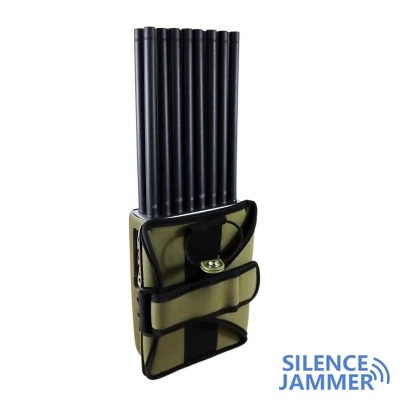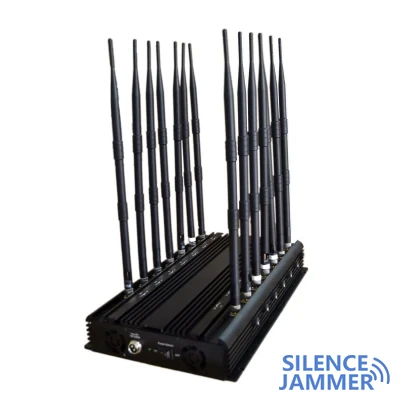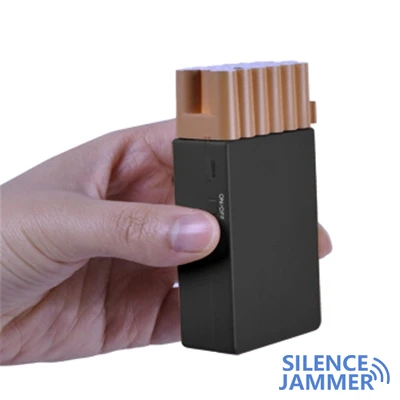
To tackle the problem of illegal use of mobile phones by prisoners, the Punjab prison department is piloting the installation of portable cell phone signal jammers. This pilot project has been launched in Patiala Central Prison and if the results are significant, it will be extended to major prisons across the state. The move aims to prevent gang members from using mobile phones to conduct criminal activities and ease prison management problems by blocking signals in the barracks.
Piloting portable signal jammer device to combat communications vulnerabilities
The Punjab prison administration has reportedly partnered with India's national phone service provider, Bharat Sanchar Nigam Limited (BSNL), to test portable jammer blockers in areas with high concentrations of prisoners. These devices can effectively block cell phone signals in specific areas without interfering with civilian communications outside the prison. Patiala Central Jail, the first site for the pilot project, has taken the lead in installing these devices. According to prison department director PK Sinha, BSNL has been asked to demonstrate the effectiveness of the signal blocker and once the trials are successful, there are plans to roll it out across prisons across the state.
Traditional cell phone signal jammers face technical challenges
| 1. Insufficient signal coverage | The large cell phone jammers used in Punjab prisons in the past could only block 2G signals due to outdated technology. However, most prisoners today use smartphones that support 4G and 5G. Therefore, traditional signal jammers have little effect in preventing illegal communications, leading to repeated abuse of mobile phones in prisons. |
| 2. Equipment costs are high | Traditional large jammer devices are not only expensive, but also require high maintenance costs. This makes it difficult for prison departments to update and upgrade equipment in a timely manner with limited budgets. In comparison, portable jammers cost less, making them a more cost-effective option for prison management. |
| 3. The interference range is difficult to control accurately | Previous large-scale signal jammers often covered too wide a range and were unable to accurately focus on specific areas where prisoners moved, resulting in limited signal shielding effects. What's more serious is that these devices will also spread to residential areas outside the prison, interfering with the normal communications of innocent people. Therefore, traditional jammer devices have great limitations in practical use and often trigger complaints from surrounding communities. |
| 4. Insufficient flexibility | Traditional interference equipment is bulky and complex to install, and cannot be flexibly adjusted according to actual needs. This means that when prisoners are moved to new cells or barracks, the old equipment has difficulty adjusting signal coverage in time. Portable jammers are highly flexible and can be quickly deployed in specific areas to conduct targeted blockade of key monitoring objects. |
| 5. Failure caused by obsolete technology | With the rapid development of communication technology, traditional signal jammers have failed to keep up with the times, causing their signal shielding capabilities to gradually fail. Prisoners use smartphones and emerging communication technologies to bypass blockers and conduct illegal operations, which greatly increases the difficulty of prison management. The introduction of portable blocker jammers can effectively address this challenge and ensure the effectiveness of communication control through more advanced shielding technology. |
In summary, the high cost, low accuracy and obsolete technology of traditional jamming technology can no longer cope with the challenges posed by modern communication technology. Therefore, it has become inevitable for Punjab Prisons to turn to more flexible portable signal blocker jammers to deal with the problem of illegal communications among prisoners.
Move prisoners to "no signal" areas
Faced with the problem of gangsters using mobile phones for illegal operations in prisons, Punjab prison management has to take stricter measures. Recently, the authorities have moved some notorious prisoners to the "dead zone" of Bathinda Prison - a closed area with no mobile phone signal at all, in order to completely cut off their contact with the outside world. It is reported that these gang members frequently use mobile phones to carry out criminal activities, which not only increases the security risks within the prison, but also poses great challenges to the management of prison staff.

"Ninety percent of prisoners are relatively well-behaved, but the remaining 10% put prison management under tremendous pressure," Sinha said, which is why problem prisoners are moved to "no signal" areas. Through this initiative, Punjab hopes to reduce the misuse of mobile phones in prisons and improve overall security.
Crack down on illegal communications and ensure prison safety
The Punjab prison administration has been looking for effective means for years to curb inmates using mobile phones to engage in illegal activities. This collaboration with BSNL to test portable signal blockers is seen as a more feasible and low-cost solution. In addition to effectively blocking signals, portable signal blockers can also be flexibly adjusted according to actual needs to more accurately cover specific areas and ensure the security of internal prison communications.
In the future, if this pilot program is successful, Punjab is expected to become the first Indian state to fully deploy portable jammer devices. Through this initiative, the prison management department will further improve its ability to control prisoners, reduce safety hazards caused by mobile phone abuse, and lay the foundation for creating a safer prison environment.





